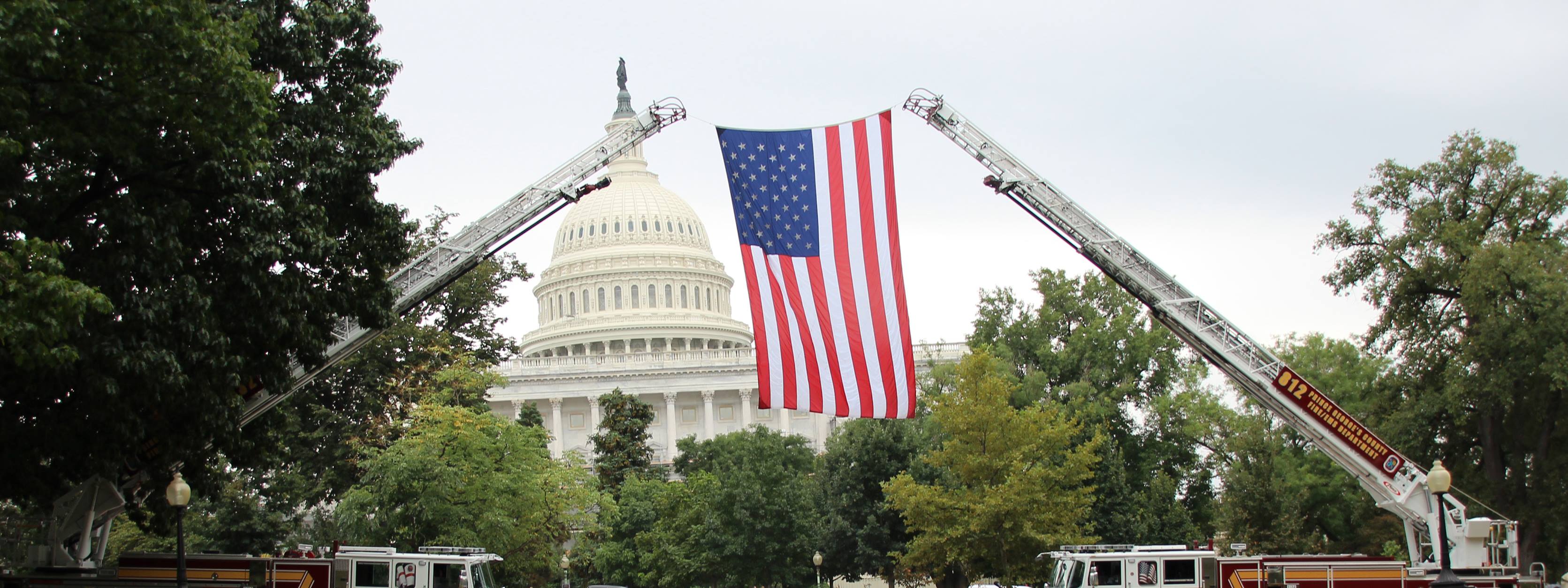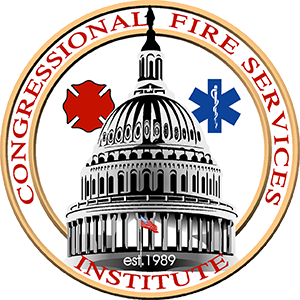Exchanging Knowledge to Advance our Mission: Over 1,500 Fire Service Officials Assemble in Washington, DC To Exchange Their Knowledge and Support CFSI

Oliver Holmes, Sr. once said, “It is the province of knowledge to speak and the privilege of wisdom to listen.” Each year, the Congressional Fire Services Institute (CFSI) conducts the National Fire and Emergency Services Symposium and Dinner program to provide opportunities for fire service leaders across the nation to both speak and listen. And it was for this reason that we selected “Exchanging Knowledge to Advance Our Mission.”
There is much to learn about the federal government’s role in the fire and emergency services. Virtually every federal department administers a program that impacts our nation’s fire and emergency services. The United States Fire Administration and the Assistance to Firefighters and Staffing for Adequate Fire and Emergency Response grant programs are the programs we think of first. But there are many others that, to varying extent, provide training, funding, and resources to our nation’s fire service. The primary goal in conducting the National Fire and Emergency Service Symposium and Dinner is to educate fire service officials about these federal programs so they can help us advocate support for them on Capitol Hill and to ensure that they are adequately funded. We achieve this goal primarily through our seminar program that features national fire service leaders who share their insight on a broad range of federal and national issues, policies and programs.
This year, we added a second day of seminars based on feedback we have received from attendees of previous programs. The results were positive, as attendance eclipsed last year’s event. And thanks to Columbia Southern University, our attendees received Continuing Education Units, adding to the value of the seminar program.
Unfortunately, Congress was not in session the week of our event. But this glitch did not discourage our attendees from scheduling meetings with congressional staff. Equipped with CFSI briefing materials, they made their presence felt on Capitol Hill, disseminating information about fire service legislation pending before Congress.
The culmination of the two-day program was the annual National Fire and Emergency Services Dinner. Approximately 1,500 fire and emergency services leaders gathered together in the Washington Hilton’s International Ballroom to pay tribute to the men and women of our nation’s fire and emergency services. The Keynote Speaker was United States Fire Administrator Keith Bryant. Focusing his remarks on the theme of the program, Bryant reflected on the work performed by the 20 members of the National Commission on Fire Prevention and Control that published the seminal report, America Burning, stating that the exchange of knowledge about fire service challenges didn’t stop with those members. He said, “It was the starting point of not only the continual exchange of knowledge but the critical, crucial conversations and debates that would ensue over time in numerous conferences, conventions, symposiums…”
In addition to Chief Bryant, the dinner program featured remarks from Senator Tom Carper, Chair of the Congressional Fire Services Caucus; Congressman Steny Hoyer, a Fire Caucus Co-Chair; and a special tribute at the end of the program honoring the late-Senator John McCain, the last original Co-Chair of the Fire Caucus to serve in Congress. CFSI also presented four leadership awards to both individuals and organizations:
- Chief Russ Sanders (Ret) of the National Fire Protection Association was honored with the CFSI/Motorola Solutions Mason Lankford Fire Service Leadership Award;
- Denver (CO) Fire Department and the Florida Firefighters Safety and Health Collaborative received the CFSI/NFFF Senator Paul S. Sarbanes Fire Service Safety Leadership Award;
- Dr. Ernest Grant, former Outreach Nurse Clinician at the North Carolina Jaycee Burn Center was named the recipient of the CFSI/IFSTA at OSU Dr. Anne W. Phillips Award for Leadership in Fire Safety Education; and
- Phoenix (AZ) Fire Department and the Winona (OH) Fire Department were named the CFSI/Masimo Excellence in Fire Service-Based EMS Award recipients.
The morning following the dinner, CFSI’s National Advisory Committee (NAC) conducted its semiannual meeting. Composed of the leading fire service organizations in the country, the NAC provides a forum where the national fire organizations develop consensus on important national fire and emergency services issues. During the meeting, the NAC approved four resolutions:
- A resolution in support of legislation extending the September 11th Victim Compensation Fund Act;
- A resolution expressing support for requiring federal infrastructure investments be designed and constructed to the latest codes and standards;
- A resolution in support of the Helping Emergency Responders Overcome (HERO) Act; and
- A resolution expressing concern about growing damage from wildfires and encouraging increased support for coordinated community risk reduction, research, and suppression efforts.
The NAC also re-elected Chief Greg Cade, of the National Fire Protection Association, to a second term as Chair and Chief Ron Siarnicki, of the National Fallen Firefighters Foundation to a second term as Vice-Chair.
We understand the challenges in traveling to Washington, DC to attend our program. These challenges are no different than the ones you face when attending other conferences. Travel costs make it difficult as does potential scheduling conflicts. That is why we are always eager to receive feedback from our attendees about their experiences. Each year, we strive to improve the program. This year, we added the second day of seminars; the year before we incorporated videos into the award presentations. If you have an idea, please share it with us.
The CFSI staff is committed to doing its part to make the fire service a safer profession. With the support we receive from the National Fire and Emergency Services Symposium and Dinner, we can continue exchanging knowledge and building consensus both on Capitol Hill and among the national fire organizations on issues that will advance the mission of the entire fire and emergency services community.
